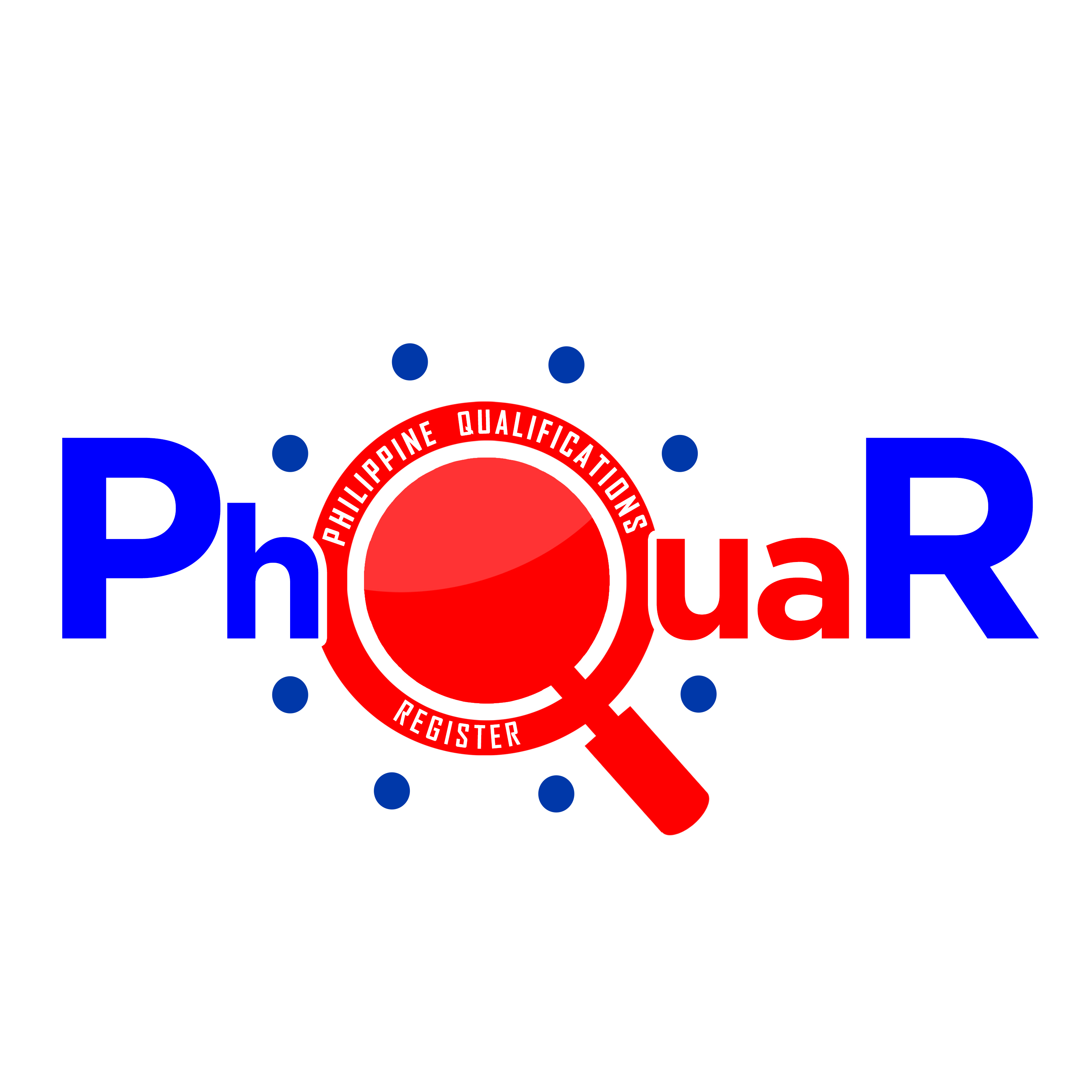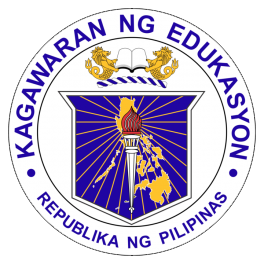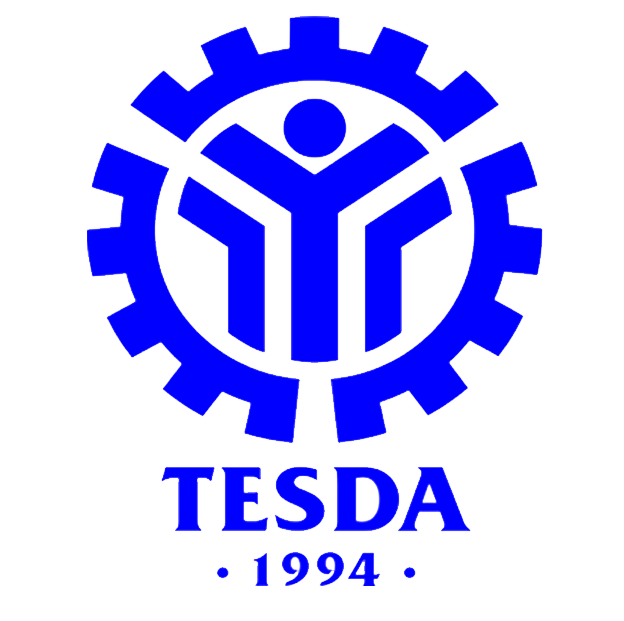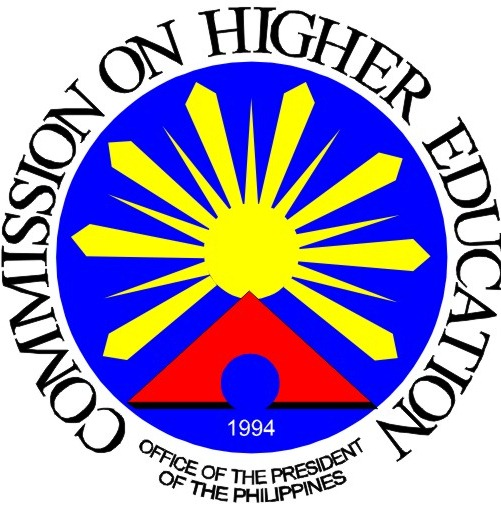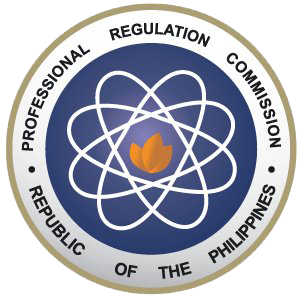Register of Qualifications
Search Qualifications
| Qualification Code | Qualifications | Descriptor | Level | Authority Granting Agency |
Instrument (PSG/CMO/Board Resolution) |
Date of Authorization |
|---|---|---|---|---|---|---|
| 60321 | Bachelor of Arts in Broadcasting | BROADCASTING as a field of study has traditionally covered the transmission of messages to the public through the media of radio and television. Today the field has expanded to include non-traditional internet-based multi-platform media. Its study includes contemporary practices in broadcasting, theories, and discourses which shape the generation of knowledge about broadcasting. Graduates of the program should be able to: 1) Demonstrate competency in at least six (6) of the following: Scriptwriting; Directing; Producing; Performing; News Reporting; Production designing (lighting, set design, costume/makeup); Post-production; Web content creation and development and web designing; Graphic designing; Videography/cinematography; Musical scoring 2) Prepare communication/media plan.3) Conduct media research: audience research, textual analysis, political economic analysis of the media. 4) Apply basic media management and leadership skills. 5) Exemplify ethical standards and practices. 6) Abide by laws pertinent to broadcasting and other media. 7) Demonstrate a sense of social responsibility. 8) Apply media theories/models, principles, practices and tools in broadcasting and other media. 9) Explain and apply social science concepts and theories to the analysis of social issues. 10) Design and execute social research using appropriate approaches and methods. 11) Practice professional and ethical standards in the fields of social sciences and communication. | VI | CHED | CMO No. 37, s. 2017 | 5/11/2017 - Present |
| 60321 | Bachelor of Arts in Communication | COMMUNICATION as a field of study covers the various ways by which humans communicate. It focuses on how verbal and non-verbal messages are used to create meanings in different contexts using diverse media platforms. It includes a broad range of subject matter ranging from the study of communication in interpersonal relationships, groups, organizations, and cultures. The BACHELOR OF ARTS IN COMMUNICATION program equips students with the knowledge and skills in the theory and practice of communication applicable in various professions and contexts, with focus on the media professions. Graduates of the program should be able to: 1) Define and access information needs; assess and organize information and knowledge; produce, share and utilize information and knowledge. 2) Communicate in different formats and platforms (print, broadcast, and online. 3) Prepare communication/media plan. 4) Conduct communication and media research and evaluation. 5) Develop and produce communication materials in different formats and platforms. 6) Demonstrate communication management and leadership skills. 7) Develop entrepreneurial capabilities. 8) Adhere to ethical standards and practices. 9) Know and practice rights and responsibilities and accountabilities in the communication profession. 10) Demonstrate a development orientation in communication work. 11) Apply communication theories/models, principles, practices, and tools in development work. 12) Understand and apply social science concepts and theories to the analysis of social issues. 13) Design and execute social research using appropriate approaches and methods. 14) Practice professional and ethical standards in the fields of social sciences and communication. | VI | CHED | CMO No. 35, s. 2017 | 5/11/2017 - Present |
| 60321 | Bachelor of Science in Development Communication | DEVELOPMENT COMMUNICATION as a field of study covers the various ways by which humans communicate. It focuses on how verbal and non-verbal messages are used to create meanings in various contexts using various media platforms. It includes a broad range of subject matter ranging from communication, natural and social sciences and other technical courses such as agriculture, health, and environment. This also includes the study of communication in interpersonal relationships, groups, organizations, and cultures. Graduates of the program should be able to: 1) Develop a critical understanding of development perspectives. 2) Define and access information needs; assess and organize information and knowledge; produce, share, and utilize information and knowledge. 3) Apply communication theories/models, principles, practices, and tools in development work. 4) Develop a communication program/plan. 5) Demonstrate effective interpersonal skills as a linker, networker, and mediator. 6) Communicate in different formats and platforms (print, broadcast, and online). 7) Conduct communication research, monitoring, and evaluation. 8) Develop and produce multi-media materials. 9) Demonstrate program management and leadership skills. 10) Develop entrepreneurial capabilities. 11) Adhere to ethical standards and practices. 12) Know and practice rights and responsibilities and accountabilities in the communication profession. 13) Integrate technical knowledge (e.g., Biological Sciences, Physical Sciences, Health Sciences, and Applied Sciences) in content development and management. 14) Understand and apply social science concepts and theories to the analysis of social issues. 15) Design and execute social research using appropriate approaches and methods. 16) Practice professional and ethical standards in the fields of social sciences and communication. | VI | CHED | CMO No. 36, s. 2017 | 5/11/2017 - Present |
| 60311 | Bachelor of Science in Economics / Bachelor of Arts in Economics | ECONOMICS is the scientific study of how people allocate and use scarce resources. The BACHELOR OF ARTS IN ECONOMICS program aims to equip students with knowledge in economic theory and its applications and with essential skills for undertaking economic analysis. It requires fewer Economics courses but more liberal arts subjects. On the other hand, the BACHELOR OF SCIENCE IN ECONOMICS program is designed to equip students with knowledge in economic theory and its applications and with essential skills for undertaking economic analysis. The program is designed for students who prefer more courses in mathematics and the sciences. Graduates of the program should be able to: 1) Demonstrate knowledge of economic theory and the standard methods used in economic research. 2) Demonstrate the ability to diagnose economic problems using appropriate theories and methodologies. 3) Effectively communicate economic arguments and research results. 4) Appreciate and practice good citizenship. 5) Demonstrate a deep commitment to maintaining high ethical standards especially in constituting, analyzing, and interpreting economic data and results. 6) Understand and apply social science concepts and theories to the analysis of social issues. 7) Design and execute social research using appropriate approaches and methods. 8) Practice professional and ethical standards in the fields of social sciences and communication. | VI | CHED | CMO No. 32, s. 2017 | 5/11/2017 - Present |
| 60222 | Bachelor of Arts in History | HISTORY is the study of the past, encompassing every dimension of human experience – social life, the economy, culture, thought, and politics. Graduates of the program should be able to: 1) Demonstrate an understanding of history as a social science/humanistic discipline. 2) Demonstrate a general knowledge of Philippine history. 3) Demonstrate a general knowledge of Asian and world history. 4) Identify the primary and secondary sources necessary for the study of a specific research problem. 5) Locate appropriate sources and demonstrate familiarity with standard citation format. 6) Analyze historical data from multiple viewpoints. 7) Complete a research paper using sound historical methodology. 8) Recognize other scholars' works and exhibit openness to peer review. 9) Acquire a reading knowledge of a language necessary for research. 10) Recognize the relevance of the study of the past to contemporary issues and concerns. 11) Relate the role of history in asserting national identity. 12) Demonstrate an understanding of and apply social science concepts and theories to the analysis of social issues. 13) Design and execute social research using appropriate approaches and methods. 14) Practice professional and ethical standards in the fields of social sciences and communication. | VI | CHED | CMO No. 38, s. 2017 | 5/11/2017 - Present |
| 60923 | Bachelor in Human Services | The field of HUMAN SERVICES is broadly defined, uniquely approaching the objective of meeting human needs through a multidisciplinary knowledge base, focusing on prevention as well as remediation of problems, and maintaining a commitment to enrich the overall quality of life of service populations. Graduates of the program should be able to: 1) Describe the nature of human systems: individual, group, organization, community and society, and their major interactions (Knowledge in Human Services). 2) Explain the conditions which promote or limit optimal functioning and classes of deviations from desired functioning in the major human systems (Human Services Delivery Systems). 3) Identify and select interventions which promote growth and goal attainment, including assistance, referral, or advocacy (Interventions & Services). 4) Demonstrate professional helping skills, values and attitudes that facilitate client outcomes across settings and contexts (Helping Skills). 5) Appraise one's own personal qualities, value orientation, and understanding of organizational values and human service ethics, in relation to how they affect clients (Self-Development and Professional Ethics). 6) Show appreciation of the client’s values, lifestyle and goals (Client-Related Values and Attitudes). 7) Design, implement and evaluate appropriate and ethical activities in human services based on needs and evidence (Planning and Evaluation). 8) Understand and apply social science concepts and theories to the analysis of social issues. 9) Design and execute social research using appropriate approaches and methods. 10) Practice professional and ethical standards in the fields of social sciences and communication. | VI | CHED | CMO No. 33, s. 2017 | 5/11/2017 - Present |
| 60321 | Bachelor of Arts in Journalism and Bachelor in Journalism | JOURNALISM covers the principles and techniques of reporting, writing, producing and disseminating news in a range of forms, formats and platforms in a democracy such as the Philippines. It focuses on timely events, issues and developments relevant to the communities the journalist serves. This field of study promotes professional and ethical standards, and includes reflection on best practices. The BACHELOR OF JOURNALISM program has a total of 113 units while the BACHELOR OF ARTS IN JOURNALISM has a total of 140 units Graduates of the program should be able to: 1) Identify newsworthy stories in a complex field of facts and opinions, focusing on those of particular importance to the community they serve; community is interpreted broadly as geographic, virtual, of shared interest or philosophy. 2) Conduct journalistic research. 3) Write, illustrate, edit, produce and disseminate for various formats and platforms. 4) Uphold journalism ethics and professional standards in keeping with the role of journalism in a democracy. 5) In the case of graduates of universities, produce scholarly work that would add to the body of knowledge on journalism. 6) Understand and apply social science and communication concepts and theories to the analysis of social issues. 7) Design and execute social science and communication research using appropriate approaches and methods. 8) Uphold professional and ethical standards in the social sciences and communication. | VI | CHED | CMO No. 41, s. 2017 | 5/12/2017 - Present |
| 60313 | Bachelor of Arts in Psychology / Bachelor of Science in Psychology | PSYCHOLOGY is the scientific study of behavior and mental processes. In general, the emphasis is on the individual person and how the person’s mental processes and behavior are affected by internal, relational and social factors. The BACHELOR OF ARTS IN PSYCHOLOGY program aims to produce graduates with a solid basic knowledge and skills in psychology. On the other hand, the BACHELOR OF SCIENCE IN PSYCHOLOGY program, the objectives are the same as in Bachelor of Arts in Psychology but with additional preparation in the natural sciences. Graduates of the program should be able to: 1) Demonstrate the capability to discuss and analyze the major theories and concepts in psychology (knowledge in psychology). 2) Demonstrate and apply the methods of psychological inquiry in building knowledge on local culture and context (psychological research). 3) Demonstrate and apply psychological theories and methods in personal and professional setting (application of psychology). 4) Demonstrate capability for self reflection and independent learning in graduate education or in a professional context (independent learning). 5) Demonstrate professional and ethical behaviors in research and practice in Psychology (ethics). 6) Demonstrate harmonious interpersonal relationship with colleagues, clients and others (interpersonal skills) in diverse cultural setting. 7) Demonstrate the ability to conduct psychological assessments and evaluation (psychological assessment). 8) Apply social science concepts and theories to the analysis of social issues. 9) Design and execute social science research using appropriate approaches and methods. 10) Practice professional and ethical standards in the fields of social sciences and communication. | VI | CHED | CMO No. 34, s. 2017 | 5/11/2017 - Present |
| 60312 | Bachelor of Arts in Political Science | POLITICAL SCIENCE is the study of governments, public policies and political behavior, using both humanistic and scientific perspectives and skills to examine all countries and regions of the world. Graduates of the program should be able to: 1) Compare, contrast and classify the major concepts in the discipline. 2) Recognize and define the distinctiveness of the discipline, its sub-fields, theories and methods. 3) Design and execute research inquiries using appropriate quantitative and qualitative methods guided by theories or conceptual frameworks. 4) Demonstrate written, visual and oral presentation skills to produce and present analytical reports. 5) Critique, judge and respond to current issues and problems based on a substantive understanding of the historical and contemporary developments in the national and global contexts. 6) Develop a predisposition towards ethical political involvement and practice in various forms and on different levels of engagement. | VI | CHED | CMO No. 51, s. 2017 | 5/31/2017 - Present |
| 60923 | Bachelor of Science in Social Work | SOCIAL WORK is a practice-based profession and an academic discipline that promotes social change and development, social cohesion, and the empowerment and liberation of people. Principles of social justice, human rights, collective responsibility and respect for diversities are central to social work. Graduates of the program should be able to: 1) Demonstrate knowledge, skills, and attitudes in engaging in a generalist helping process and planned change process for therapeutic, protective, preventive, and transformative purposes. 2) Analyze critically the origin, development, and purposes of social work in the Philippines. 3) Critique the impacts of global and national socio-structural inadequacies, discrimination, and oppression on quality of life. 4) Apply knowledge of human behavior and social environment with emphasis on the person-in-situation dynamic for social work assessment and intervention. 5) Critique social welfare policies, programs, and services of the locality, country and /or region in terms of relevance, responsiveness, accessibility and availability to target populations. 6) Engage in advocacy work to promote socio-economic and cultural rights and well-being. 7) Generate resources for networking and partnership development. 8) Identify with the social work profession and conduct oneself in accordance with social work values and ethical principles. 9) Engage in social work practices that promote diversity and difference in client systems. 10) Use supervision to develop critical self-reflective practice for personal and professional growth. 11) Produce a portfolio of recordings, case studies and other social work documentation to reflect the quality and progress of practice. 12) Apply social science concepts and theories to the analysis of social issues 13) Execute social research using appropriate approaches and methods 14) Practice professional and ethical standards in the fields of social sciences and communication. | VI | CHED | CMO No. 39, s. 2017 | 5/12/2017 - Present |
| 60314 | Bachelor of Arts in Sociology | SOCIOLOGY is the systematic study of social life, groups, societies, world systems, and virtual communities focusing on the dynamic interplay between individual and society. Graduates of the program should be able to: 1) Explain and apply sociological concepts and theories. 2) Apply research skills in designing, implementing, and assessing social programs and projects in academic, government, corporate, development and other settings. 3) Analyze and address social problems and issues. 4) Communicate ideas effectively in relevant settings. 5) Practice professional and ethical standards of Sociology and the social sciences. 6) Understand and apply social science concepts and theories to the analysis of social issues. 7) Design and execute social research using appropriate approaches and methods. 8) Practice professional and ethical standards in the fields of social sciences and communication. | VI | CHED | CMO No. 40, s. 2017 | 5/12/2017 - Present |
| 60111 | Bachelor of Elementary Education | The BACHELOR OF ELEMENTARY EDUCATION program is an undergraduate teacher education degree program designed to prepare individuals intending to teach in the elementary level. The program aims to develop highly motivated and competent teachers specializing in the content and pedagogy for elementary education. Graduates of the program should be able to: 1) Demonstrate in-depth understanding of the diversity of learners in various learning areas. 2) Manifest meaningful and comprehensive pedagogical content knowledge (PCK) of the different subject areas. 3) Utilize appropriate assessment and evaluation tools to measure learning outcomes. 4) Manifest skills in communication, higher order thinking and use of tools and technology to accelerate learning and teaching.5) Demonstrate positive attributes of a model teacher, both as an individual and as a professional. 6) Manifest a desire to continuously pursue personal and professional development. 7) Articulate the rootedness of education in philosophical, socio-cultural, historical, psychological, and political contexts. 8) Demonstrate mastery of subject matter/discipline. 9) Facilitate learning using a wide range of teaching methodologies and delivery modes appropriate to specific learners and their environments. 10) Develop innovative curricula, instructional plans, teaching approaches, and resources for diverse learners. 11) Apply skills in the development and utilization of ICT to promote quality, relevant, and sustainable educational practices. 12) Demonstrate a variety of thinking skills in planning, monitoring, assessing, and reporting learning processes and outcomes. 13) Practice professional and ethical teaching standards sensitive to the local, national, and global realities.14) Pursue lifelong learning for personal and professional growth through varied experiential and field-based opportunities. | VI | CHED | CMO No. 74, s. 2017 | 11/2/2017 - Present |
| 60111 | Bachelor of Secondary Education | The BACHELOR OF SECONDARY EDUCATION is an undergraduate teacher education program designed to equip learners with adequate and relevant competencies to teach in their chosen area of specialization/major in the secondary level. The program aims to develop highly motivated and competent teachers specializing in the content and pedagogy for secondary education. Graduates of the program should be able to:1) Articulate the rootedness of education in philosophical, socio-cultural, historical, psychological, and political contexts. 2) Demonstrate mastery of subject matter/discipline. 3) Facilitate learning using a wide range of teaching methodologies and delivery modes appropriate to specific learners and their environments. 4) Develop innovative curricula, instructional plans, teaching approaches, and resources for diverse learners. 5) Apply skills in the development and utilization of ICT to promote quality, relevant, and sustainable educational practices. 6) Demonstrate a variety of thinking skills in planning, monitoring, assessing, and reporting learning processes and outcomes. 7) Practice professional and ethical teaching standards sensitive to the local, national, and global realities. 8) Pursue lifelong learning for personal and professional growth through varied experiential and field-based opportunities. In addition, graduates of the program with the following Majors should be able to: A) English 1) Possess broad knowledge of language and literature for effective learning. 2) Use English as a glocal language in a multilingual context as it applies to the teaching of language and literature. 3) Acquire extensive reading background in language, literature, and allied fields. 4) Demonstrate proficiency in oral and written communication. 5) Shows competence in employing innovative language and literature teaching approaches, methodologies, and strategies. 6) Use technology in facilitating language learning and teaching. 7) Inspire students and colleagues to lead relevant and transformative changes to improve learning and teaching language and literature. 8) Display skills and abilities to be a reflective and research-oriented language and literature teacher. B) Filipino 1) Nagpapamalas ng mataas na antas ng kaalaman sa pagtuturo ng wika at panitikang Filipino. 2) Nagpapakita ng malawak at malalim na pag-unawa at kaalaman sa ugnayan ng wika, kultura, at lipunan. 3) Nakagagamit ng iba’t ibang kasanayan at kaalaman sa proseso ng pagtuturo-pagkatuto. 4) Nagtataglay ng kaalaman hinggil sa usapin ng kultural at linggwistikong dibersidad ng bansa. 5) Nakapagdidisenyo ng malikhain, inobatibo, at integratibong mga alternatibong dulog sa pagtuturo at pagkatuto. 6) Nakagagawa ng pananaliksik ukol sa ikauunlad ng wikang Filipino bilang wikang panturo. C) Mathematics 1) Exhibit competence in mathematical concepts and procedures. 2) Exhibit proficiency in relating mathematics to other curricular areas. 3) Manifest meaningful and comprehensive pedagogical content knowledge (PCK) of mathematics. 4) Demonstrate competence in designing, constructing and utilizing different forms of assessment in mathematics. 5) Demonstrate proficiency in problem-solving by solving and creating routine and non-routine problems with different levels of complexity. 6) Use effectively appropriate approaches, methods, and techniques in teaching mathematics including technological tools. 7) Appreciate mathematics as an opportunity for creative work, moments of enlightenment, discovery and gaining insights of the world. D) Sciences 1) Demonstrate deep understanding of scientific concepts and principles. 2) Apply scientific inquiry in teaching and learning. 3) Utilize effective science teaching and assessment methods. E) Social Studies 1) Utilize appropriate various sociocultural and historical materials in explaining current issues. 2) Organize communities towards self-reliance and self-sufficiency. 3) Demonstrate leadership skills that will help in teaching or training students who will empower their communities. 4) Demonstrate leadership skills that will help in teaching or training students who will empower their communities. 5) Employ principles of sustainable development in teaching and learning. 6) Show scholarship in research and further learning. 7) Display the qualities of an innovative teacher who has mastery of the subject matter. F) Values Education 1) Demonstrate understanding of the Values Education Framework of the K to 12. 2) Demonstrate knowledge and understanding of various philosophical and theoretical underpinnings of teaching values education. 3) Demonstrate understanding how psychological, moral, spiritual, and socio-cultural shape human values. 4) Exhibit critical mindedness in analyzing local, regional, national, and global trends and issues relevant to values education. 5) Show passion and commitment in becoming advocates of universal values of openness, peace, tolerance, social justice and respect for human rights. 6) Become an exemplar of Filipino values. 7) Show understanding of the theories, principles and application and application of strategies for effective intra and interpersonal skills. 8) Demonstrate commitment to students’ development for personal renewal and social transformation. 9) Demonstrate competence in employing various pedagogical approaches, methods and techniques for teaching values. 10) Demonstrate competence in the conduct of research and utilization of results to improve values education. 11) Demonstrate in-depth knowledge in developing and using traditional and non-traditional strategies for assessing learner’s performance in values education. 12) Demonstrate competence in integrating context appropriate technology to optimize teaching and learning. 13) Manifest commitment to community service as a means to promote social values. 14) Show reflective skills in applying strong moral and ethical principles in their decisions and actions as values education teacher. | VI | CHED | CMO No. 75, s. 2017 | 11/2/2017 - Present |
| 60112 | Bachelor of Early Childhood Education | The BACHELOR OF EARLY CHILDHOOD EDUCATION program provides students with fundamental understanding and application of the principles of early childhood care and education, as well as experience in the application of these principles. The program aims to educate individuals to be competent early childhood practitioners working with children from 0-8 years old in various early childhood settings (home, community, school, and workplace). It is aligned with the National Early Learning Framework (NELF), the National Competency Based Teacher Standards (NCBTS 2017) and the first key stage which is K to 3. Graduates of the program should be able to: 1) Demonstrate high level of content and pedagogical knowledge. 2) Demonstrate appreciation for diversity. 3) Manifest collaborative skills. 4) Demonstrate innovative thinking. 5) Possess critical and problem solving skills. 6) Advocate for children’s rights, equity, community, nationalism, and democratic ideas 7) Pursue lifelong learning 8) Articulate the rootedness of education in philosophical, socio-cultural, historical, psychological, and political contexts. 9) Demonstrate mastery of subject matter/discipline. 10) Facilitate learning using a wide range of teaching methodologies and delivery modes appropriate to specific learners and their environments. 11) Develop innovative curricula, instructional plans, teaching approaches, and resources for diverse learners. 12) Apply skills in the development and utilization of ICT to promote quality, relevant, and sustainable educational practices. 13) Demonstrate a variety of thinking skills in planning, monitoring, assessing, and reporting learning processes and outcomes. 14) Practice professional and ethical teaching standards sensitive to the changing local, national, and global realities. | VI | CHED | CMO No. 76, s. 2017 | 11/2/2017 - Present |
| 60113 | Bachelor of Special Needs Education | The BACHELOR OF SPECIAL NEEDS EDUCATION is an undergraduate degree program which specializes in special needs education. The program prepares teachers who will instruct and manage students with additional needs in inclusive and segregated educational settings. Its graduates will be equipped to teach the basic education curriculum and alternate curricula depending on the needs of the students. Those who will teach in the elementary level will be trained across different subject areas. Those who will teach in the secondary level will provide educational support to students with additional needs in inclusive classrooms or provide educational services to students who may be enrolled in special education centers. Graduates of the program should be able to demonstrate knowledge, skills and dispositions under the following domains: 1) Basic/Foundation: Provide respectful and meaningful learning experiences and collaborative opportunities for students with additional needs and their families. 2) Learner Development and Individual Learning Differences: Respond effectively to educational needs of students with additional needs 3) Learning Environments: Create safe, inclusive, culturally responsive learning environments for students with additional needs. 4) Curricular Content Knowledge: Use knowledge of general and specialized curricula to individualize learning for students with additional needs. 5) Instructional Planning and Strategies: Use evidence-based instructional strategies to maximize learning opportunities for students with additional needs. 6) Assessment: Use multiple methods of assessment and multiple data-sources to make sound educational decisions for students with additional needs.7) Professional Learning and Practice: Demonstrate reflective thinking and professional self-direction. | VI | CHED | CMO No. 77, s. 2017 | 11/2/2017 - Present |
Page 47 of 102
